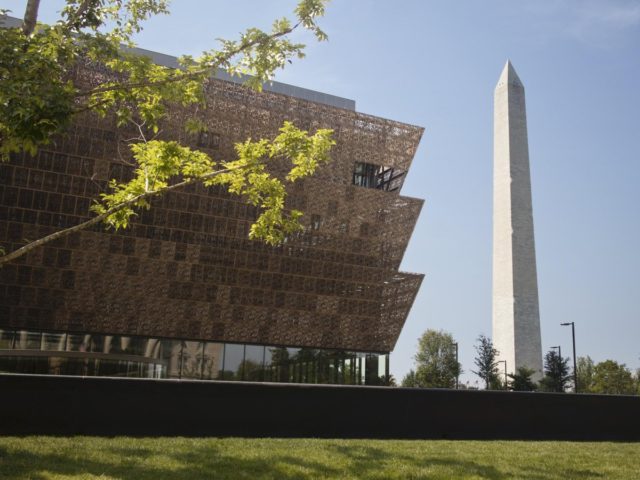The National Museum of African American History and Culture, part of the U.S. government-run Smithsonian Institution, includes a web page about “whiteness” in America that defines it to include individualism, science, and hard work.
The web page on whiteness appears to have been live on the museum’s website for just over a month, according to a search of the Internet Archive. It offers definitions and educational materials for explaining “systemic racism.”
One guide, drawn from “data” on a chart created in 1990, advises that features of “whiteness” include “rugged individualism,” the nuclear family, an “emphasis on the scientific method,” and a belief that “hard work is the key to success.”
According to the chart, other “Aspects and Assumptions of White Culture in the United States” include:
Competition
- Be #1
- Win at all costs
- Winner-loser dichotomy
- Action Orientation
- Master and control nature
- Must always “do something” about a situation
- Aggressiveness and Extroversion
- Decision-Making
- Majority rules (when Whites have power)
…
Protestant Work Ethic
- Hard work is the key to success
- Work before play
- “If you didn’t meet your goals, you didn’t work hard enough”
…
Family Structure
- Nuclear family (father, mother, 2.3 children is the ideal social unit
- Husband is breadwinner and head of household
- Wife is homemaker and subordinate to husband
- Children should have own rooms, be independent
“Whiteness,” the Smithsonian website declares (original emphasis), “and white racialized identity refer to the way that white people, their customs, culture, and beliefs operate as the standard by which all other groups of are compared. Whiteness is also at the core of understanding race in America. Whiteness and the normalization of white racial identity throughout America’s history have created a culture where nonwhite persons are seen as inferior or abnormal.”
It adds (original emphasis): “Being white does not mean you haven’t experienced hardships or oppression. Being white does mean you have not faced hardships or oppression based on the color of your skin. We need to be honest about the ways white people have benefited from racism so we can work toward an equitable, fair and just society.”
The website goes on to explain “what white privilege looks like in day to day living,” including: “If I want to, I can be pretty sure of finding a publisher for this piece on white privilege.”
It includes a video in which Dr. Robert DiAngelo, author of the bestselling White Fragility, advises viewers about white racism, including the use of the word “sketchy” to describe dangerous neighborhoods, which she says is a racist concept within “the white mind.”
The website goes on to advise: “If you identify as white, acknowledging your white racial identity and its privileges is a crucial step to help end racism. Facing your whiteness is hard and can result in feelings of guilt, sadness, confusion, defensiveness, or fear.”
It advises “concerned citizens”: “Whiteness operates in covert and overt ways that affect all of us. It can appear as practices within an institution or accepted social norms.”
As a remedy, it advises the public to “combat” aspects of whiteness.
The museum’s annual budget includes roughly $33 million from U.S. taxpayers, with the remainder provided by donors.
This is not the first time the museum has commented on “whiteness.” Past examples include:
Breitbart News reached out to the National Museum of African American History and Culture for comment Tuesday morning; no response has been received yet.
Joel B. Pollak is Senior Editor-at-Large at Breitbart News and the host of Breitbart News Sunday on Sirius XM Patriot on Sunday evenings from 7 p.m. to 10 p.m. ET (4 p.m. to 7 p.m. PT). He earned an A.B. in Social Studies and Environmental Science and Public Policy from Harvard College, and a J.D. from Harvard Law School. He is a winner of the 2018 Robert Novak Journalism Alumni Fellowship. He is also the co-author of How Trump Won: The Inside Story of a Revolution, which is available from Regnery. Follow him on Twitter at @joelpollak.

COMMENTS
Please let us know if you're having issues with commenting.